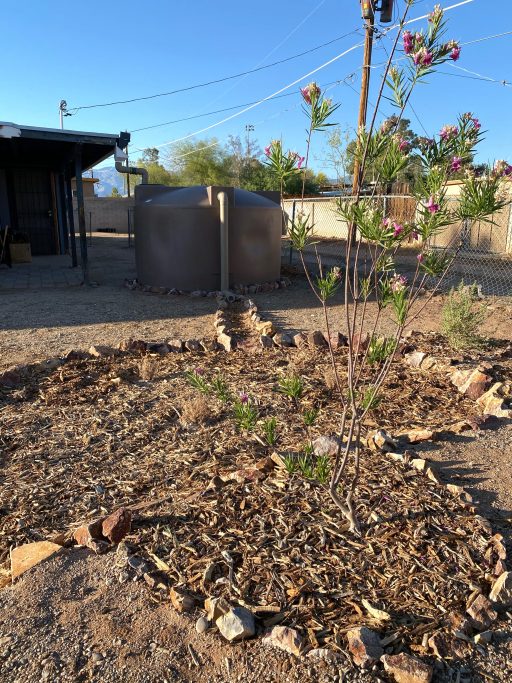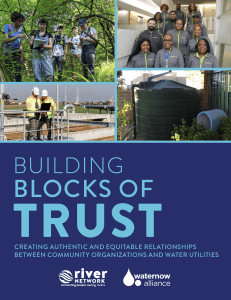Authentic Community-Water Utility Partnerships Yield Big Results
In Tucson, Arizona, water is scarce and temperatures can be scorching. As part of the Colorado River Basin, demand for water is outstripping availability, due in part to climate change. Tucson is also getting hotter, especially in “urban heat islands,” which disproportionately affect poorer neighborhoods with fewer trees and more concrete. While many of the solutions to the problems of climate change and sustainable management of the Colorado River Basin requires state and regional approaches, there are also local approaches making an important difference.
One of these is the partnership between local water utility Tucson Water and the Sonora Environmental Research Institute (SERI), a community-based organization “dedicated to providing unbiased research to disadvantaged and marginalized communities to solve their environmental challenges and build healthy and safe neighborhoods.” Together, SERI and Tucson Water work to assist families with limited incomes to conserve water, install green stormwater infrastructure, and plant and sustain trees that provide shade, cool homes, improve air quality, and reduce energy use. Tucson Water’s Residential Rainwater Harvesting Rebate program provides rebates up to $2,000 to single-family residential and small commercial Tucson Water customers for both passive and active rainwater harvesting systems, helping address both water conservation and stormwater management goals.

Photo courtesy SERI.
For homeowners who may not be able to afford the up-front costs of implementing rainwater harvesting systems, Tucson Water partnered with SERI to offer a Low-Income Rainwater Harvesting Grant & Loan Program and provide grants of up to $400 and loans of up to $2,000 to make rainwater harvesting more affordable and accessible to residents with lower incomes.
Because SERI staff have built relationships with community members and have a track record of working with residents on improving energy efficiency by planting trees at their homes, expanding the support SERI provides to residents to include rainwater harvesting made sense. It also aligned with the city’s Million Tree Initiative by providing a non-metered source of water for newly planted trees. The relationship between SERI and Tucson Water grew slowly and has helped both organizations to reach their goals and grow their impact.
This partnership is one example where community organizations and water utilities have worked together to build relationships, built on trust, that have created benefits and added value for the community and local water resources, with a focus on equity and sustainability.
Tucson was one of nine communities nationwide that joined a recent effort by River Network and the WaterNow Alliance to understand and share how successful and trusting water utility-community organization partnerships are formed and maintained.
 Over the last 18 months, with the support of Spring Point Partners, we’ve learned from these communities and synthesized our findings into our new report, Building Blocks of Trust: Creating Authentic and Equitable Relationships Between Community Organizations and Water Utilities. The report includes key foundations of trust, specific steps to take, and case studies from all of the communities.
Over the last 18 months, with the support of Spring Point Partners, we’ve learned from these communities and synthesized our findings into our new report, Building Blocks of Trust: Creating Authentic and Equitable Relationships Between Community Organizations and Water Utilities. The report includes key foundations of trust, specific steps to take, and case studies from all of the communities.
Trust between water utilities and community organizations is critical for successful decision making and investing that leads to safe, clean and sustainable water for all, and we hope that the lessons shared in our report can help seed and inspire many more such relationships.






[…] report is built around eight key foundations of trust, specific steps to take by both partners, and case studies focusing on how to apply these best practices in new […]